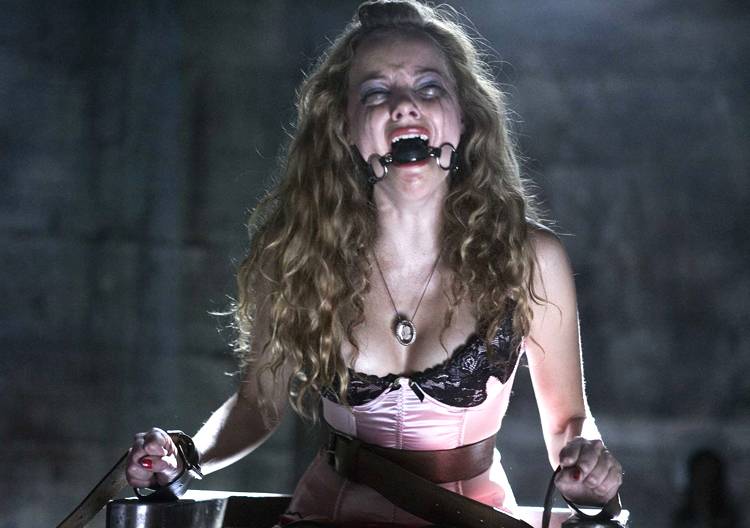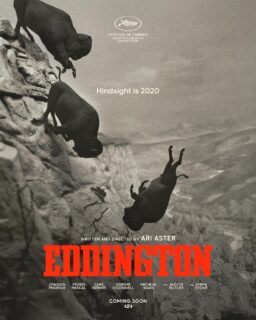Q: I disagree with your contention that, after having seen all 100 movies on the American Film Institute’s “greatest” list, one would no longer have the desire to see a Dead Teenager Movie. Such a statement does a disservice to the ranks of dedicated horror fans and critics who could intelligently construct arguments for why many of these movies are quite worthwhile. There is a baseness to them, certainly, but horror’s essential function is base — to create a sinister echo in the darkest wells of our psyche.
Dead Teenager Films add a layer of exploitation that makes the experience easier to digest, but the chord they strike is necessary. There is room for both the cinematic elite and movie sleaze in the moviegoing experience. To quote the great horror icon Vincent Price, “A man who limits his interests, limits his life.”
Nate Yapp,
Editor, Classic-Horror.com, Phoenix
A. And to paraphrase Pauline Kael, the movies are so rarely great art that if we cannot appreciate great trash, there is no reason to go. I’d draw a distinction, however, between the classic horror genre, which has produced masterpieces from “Nosferatu” to “The Silence of the Lambs,” and the Dead Teenager Movie, which I define as a movie that starts out with a lot of teenagers, and kills them all, except one to populate the sequel.
However, DTMs have their defenders; Alex Jackson of Logan, Utah, writes: “There are a handful that I definitely prefer to Hitchcock’s cowardly “Vertigo” — “Friday the 13th” Parts 2, 4, 5 and 8; “A Nightmare on Elm Street 4,” and maybe 5, and “New Nightmare”; “Sleepaway Camp”; “Dr. Giggles,” and “Halloween” (you yourself gave this four stars!).
Ebert again: “Vertigo” is cowardly? I think it is relentlessly brave. I agree that “Halloween” is great, but disagree that it is a DTM.
Q. I wrote a letter to the American Film Institute about the oddity of D.W. Griffith’s “Intolerance” jumping to 49th place from nowhere, replacing his “The Birth of a Nation.” I will never believe that enough people went out and rented “Intolerance” over the past 10 years to take it from not being on the list to essentially the same spot “Birth of a Nation” held.
When the first list came out, people raised a controversy behind “The Birth of a Nation’s” racism much the same way as they have since the film’s initial release. Griffith made “Intolerance” as a sort of a defense against people accusing him of racial intolerance. Over 10 years, some people must have felt guilty enough to decide when they redo the list, “Intolerance” had to be on it. That would show that they appreciate Griffith’s contribution to film history and also that they don’t support the message of “The Birth of a Nation,” despite its significance as a film.
Scott Collette, Los Angeles
A. I struggled with the “The Birth of a Nation” dilemma in my Great Movie piece about it. It is one of the most influential movies ever made, essentially assembling the tools of modern cinema, but it is racist. Still, I agree with you that it’s odd that one would replace the other.
I asked Jean Picker Firstenberg, the head of the AFI, if both titles were on the working list of 400 movies sent out to the 1,500 voters (they could also cast write-in votes). “Yes, indeed,” she replied.
I am confident the votes were counted fairly, and I think it’s likely most of those 1,500 filmmakers, critics, etc., would have seen both films. My hunch is that enough voters hesitated this time, thought twice about “Nation” and saw “Intolerance” as an alternative. Does that make it a better film than “Birth of a Nation”? No.
Q. Just want to point out , regarding your review of “Ocean's Thirteen,” that the gang wouldn’t have to transport a 600-ton earth-boring machine from Europe to Vegas. In fact, the Department of Energy has one for sale about 90 miles north of Vegas. The DOE used it to bore tunnels at its Yucca Mountain project, and I saw the machine for sale when I visited the mountain last year. So Ocean’s crew would still have to sneak it into Vegas and somehow dig under the strip without suspicion, but at least they wouldn’t have to worry about going overseas with the monster machine.
Rick Michal, Westmont
A. You make the plan sound almost plausible, except for a few holes you could drive a 600-ton machine through.
Q. Werner Herzog once said that if you wanted to make films you should skip film school. Instead, you should “make a journey of 5,000 kilometers alone, on foot. While walking you would learn more about what cinema truly means than you would in five years of sitting in classrooms.”
Starting in two weeks, I’m taking up Herzog’s challenge and setting out from Madrid with a backpack full of basic supplies and a tiny digital video camera. I’m going to walk all the way to Kiev and make a film of my experiences. I have communicated with Herzog and he has given the project his blessing! Check out my Web site at www.madridtokiev.com.
Lee Kazimir, Chicago
A. I received your message on Feb. 14, 2006, filed it, and intended to follow your journey, but only this week did I check your Web site. Despite illness and other troubles, you made it! Congratulations. Now you are editing a film of your trek, and write me: “I hope to have a first cut in September to qualify for submission to Sundance and Slamdance. From there, it’s a crapshoot, so we’ll see.”
Herzog himself, as you know, once walked entirely around Albania, because “at that time, they would not allow you to enter the country.” Another time, he carried a print of one of his films from Munich to Paris to deliver it to the dying film historian Lotte Eisner, correctly convinced she would not die while he was en route. However, I am not sure you received Herzog’s unqualified blessing. I asked and he responded:
“Yes, Lee Kazimir asked me for my blessing before he set out on his journey, but I had instant hesitations, and told him so, as he was going to make his voyage a public event with constant messages from him on the Internet, and a support system of sponsors. Traveling on foot was in my understanding a thing you had to do as a man exposing yourself in the most direct way to life, to pura vida, and this should stay with oneself. Anyway, I wished him all the best, but did not accept his offer to walk with him the end of his way, and be filmed and interviewed by him.”
Q. In the wake of “Jerry Springer, the Opera” comes “Siskel and Ebert Save Chicago,” Factory Theatre’s spoof now playing at Prop Thtr. Along with you and Gene, the play factors in Richard Roeper, Mayor Daley, Oprah, Dr. Phil, talk radio’s Mancow Muller, roller-skating she-devils and a plot to conquer the world. What does the Answer Man have to say about all this?
Laura Hunt, Chicago
A. I attended opening night in curiosity mixed with dread but actually enjoyed myself. It’s manic slapstick, heavy on the four-letter words, very physical, with Gene as a James Bond type and me as a movie dork. They’re pretty hard on Richard, too. And Oprah and the mayor — everybody, indeed, but Gene and the Roller Derby she-devils. But the most obvious flaw is that Gene is the hero and has all the best lines, including a closing soliloquy in praise of the movies that is so lyrical and touching, I might have written it myself.












